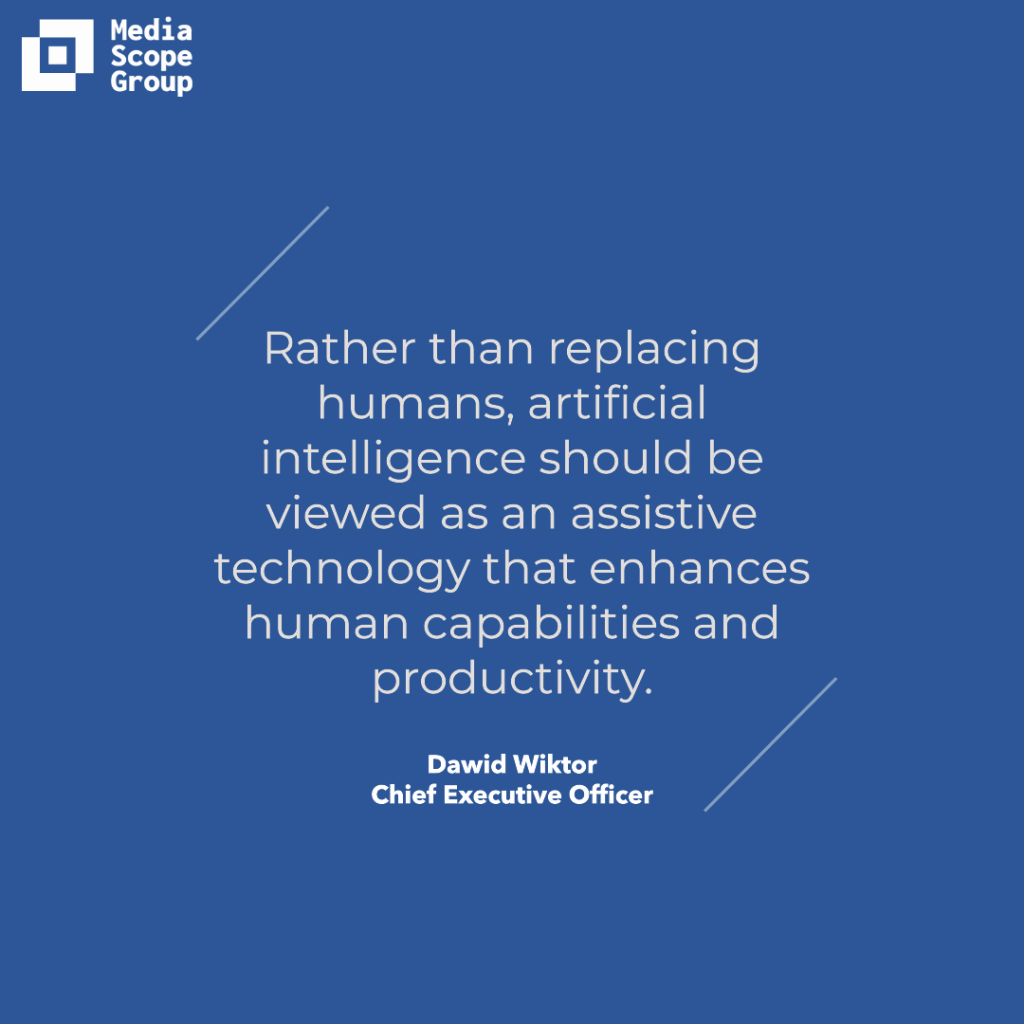AI has rapidly evolved over the past few decades, transforming various sectors and industries including healthcare, finance, education and entertainment. Despite its remarkable capabilities, artificial intelligence is often misunderstood as a potential replacement for human intelligence and labor.
Let’s elucidate why artificial intelligence should be viewed as an assistive technology rather than a replacement for humans. Moreover, we will also examine inherent limitations of AI, the irreplaceable qualities of human intelligence and the synergistic potential of human-AI collaboration, so we can better understand AI’s role in our society and economy.
The inherent limitations of AI
Artificial intelligence, despite its advanced algorithms and computational power, has several inherent limitations that prevent it from replacing human intelligence and labor entirely.
- Lack of emotional intelligence: AI systems, no matter how sophisticated, lack the ability to understand and process human emotions. Emotional intelligence is crucial in many professions, such as healthcare, education and customer service, where empathy and emotional understanding are essential.
- Creativity and innovation: While AI can generate content and even mimic certain creative processes, it lacks the genuine creativity and innovative thinking that humans possess. Creativity involves not just the generation of new ideas but also the ability to connect disparate concepts in novel ways, something AI struggles with.
- Ethical and moral judgments: AI operates based on data and predefined algorithms. It lacks the ability to make ethical and moral judgments, which are often required in complex decision-making scenarios. Human judgment, influenced by cultural, social and personal values, is irreplaceable in such contexts.
- Contextual understanding: Artificial intelligence systems often struggle with understanding context. They can process and analyze vast amounts of data but may fail to grasp the nuances and subtleties of human communication and behavior. This limitation is particularly evident in natural language processing and human-computer interaction.
The irreplaceable qualities of human intelligence
Human intelligence encompasses a range of cognitive, emotional and social abilities that AI cannot replicate.
- Empathy and compassion: Human beings have the unique ability to empathize with others, understand their feelings, and respond with compassion. This quality is essential in fields such as healthcare, counseling and social work, where emotional support and understanding are crucial.
- Critical thinking and problem-solving: Humans excel in critical thinking and problem-solving, especially in situations that require abstract thinking and the consideration of multiple perspectives. While AI can assist in data analysis and pattern recognition, it lacks the ability to think critically and adaptively in novel situations.
- Interpersonal skills: Effective communication, negotiation and collaboration are fundamental human skills that AI cannot replicate. These skills are vital in leadership, management and teamwork, where understanding and influencing human behavior is key.
- Ethical reasoning: Humans possess the ability to make ethical decisions based on a complex interplay of values, principles and societal norms. Artificial intelligence, on the other hand, can only follow predefined rules and lacks the capacity for moral reasoning.
AI as an assistive technology
Rather than replacing humans, artificial intelligence should be viewed as an assistive technology that enhances human capabilities and productivity.
- Augmenting human abilities: AI can augment human abilities by automating repetitive tasks, analyzing large datasets, and providing insights that would be difficult for humans to obtain on their own. This allows humans to focus on more complex and creative aspects of their work.
- Enhancing decision-making: AI can assist in decision-making by providing data-driven insights and recommendations. In fields such as finance, healthcare, and logistics, AI can analyze vast amounts of data to identify trends, predict outcomes and optimize processes.
- Improving accessibility: AI technologies can improve accessibility for individuals with disabilities. For example, speech recognition and natural language processing can assist those with visual or hearing impairments, while AI-powered prosthetics can enhance mobility for individuals with physical disabilities.
- Facilitating innovation: Artificial intelligence can facilitate innovation by providing tools and platforms for experimentation and exploration. In research and development, AI can accelerate the discovery process by analyzing data, identifying patterns and generating hypotheses.

The synergistic potential of human-AI collaboration
The true potential of artificial intelligence lies in its ability to collaborate with humans, creating a synergy that leverages the strengths of both.
- Complementary strengths: Humans and AI have complementary strengths. While artificial intelligence excels in data processing, pattern recognition, and automation, humans bring creativity, empathy and ethical reasoning to the table. By working together, they can achieve outcomes that neither could accomplish alone.
- Enhanced productivity: Human-AI collaboration can enhance productivity by streamlining workflows and optimizing resource allocation. In industries such as manufacturing, artificial intelligence can automate routine tasks, allowing human workers to focus on quality control and innovation.
- Improved decision-making: Combining human intuition and experience with AI’s data-driven insights can lead to better decision-making. In healthcare, for example, AI can assist doctors by analyzing medical records and suggesting potential diagnoses, while doctors apply their clinical expertise to make final decisions.
- Ethical oversight: Human oversight is essential to ensure that artificial intelligence systems are used ethically and responsibly. Humans can provide the ethical and moral guidance that AI lacks, ensuring that AI technologies are developed and deployed in ways that benefit society.
AI is not a replacement for human intelligence and labor, but an assistive technology
Artificial intelligence is a powerful tool that has the potential to transform various aspects of our lives. However, it is not a replacement for human intelligence and labor. AI’s inherent limitations, coupled with the irreplaceable qualities of human intelligence, underscore the importance of viewing AI as an assistive technology. We can harness the strengths of both to drive innovation, enhance productivity and improve the quality of life by exploring and embracing the synergistic potential of human-AI collaboration.
Therefore, it is crucial to remember that the ultimate goal of technology is not to replace humans but to empower them with new tools and capabilities. The advancements in the field of artificial technology can and should serve as an enhancement of human intelligence and potential.
You can read more writings of Dawid Wiktor on his Exec Profile.

